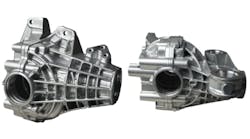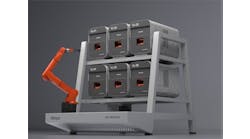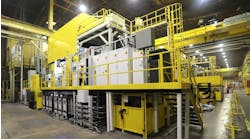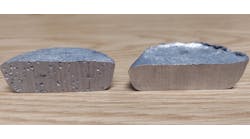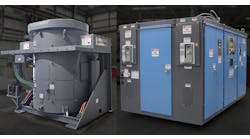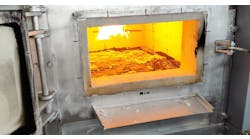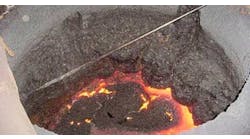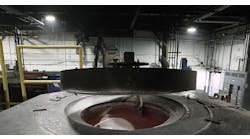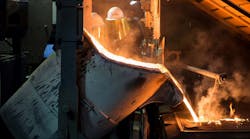Scania, the commercial vehicle and diesel engine manufacturer, announced plans to build a new foundry in Södertälje, Sweden, budgeting it at SEK 1.5 billion (est. $177.8 million). It aims to triple its production capacity for iron cylinder blocks and heads, but also to reduce energy consumption by 50% compared to the current foundry at that location.
The present foundry was established in 1914 and is situated near to Södertälje, a city in western Sweden with a population of about 72,000. The new plant will be built outside the city at an industrial estate.
The capital investment, reportedly one of the largest the manufacturer has made to date, follows a comprehensive review of alternative plans, including remodeling the current foundry and sourcing its casting requirements from third-party producers. More specifically, the new plant is seen as necessary to future manufacturing programs involving “more energy-efficient combustion engines as well as combustion engines that operate on biofuels and gas,” as described by a Scania executive.
"A completely new plant is the most cost-efficient solution and the best alternative from an environmental and quality standpoint when it comes to the future supply of strategically important parts for our engine production,” stated Ruthger de Vries, executive vice president and head of Production and Logistics at Scania. “Through this investment, we will also retain important proximity to our research and development organization, which is concentrated in Södertälje. Meanwhile, this means that Södertälje will continue to be the hub for our European engine production."
Better material logistics and recycling will be other improvements achieved by the new plant design. Scania expects the new foundry to employ almost 200 employees at full capacity, the same number of people working at the current operation.
Few specific details of the design were announced. Scania said the plans will be completed after an environmental impact assessment is completed. It expects to begin construction in January 2019.
However, it indicated it plans to introduce core- and mold-sand recycling to recover 70% of its process sand. Despite tripling the current foundry’s production volume, Scania’s reliance on long-distance trucking for its sand supply will not increase, it noted.

